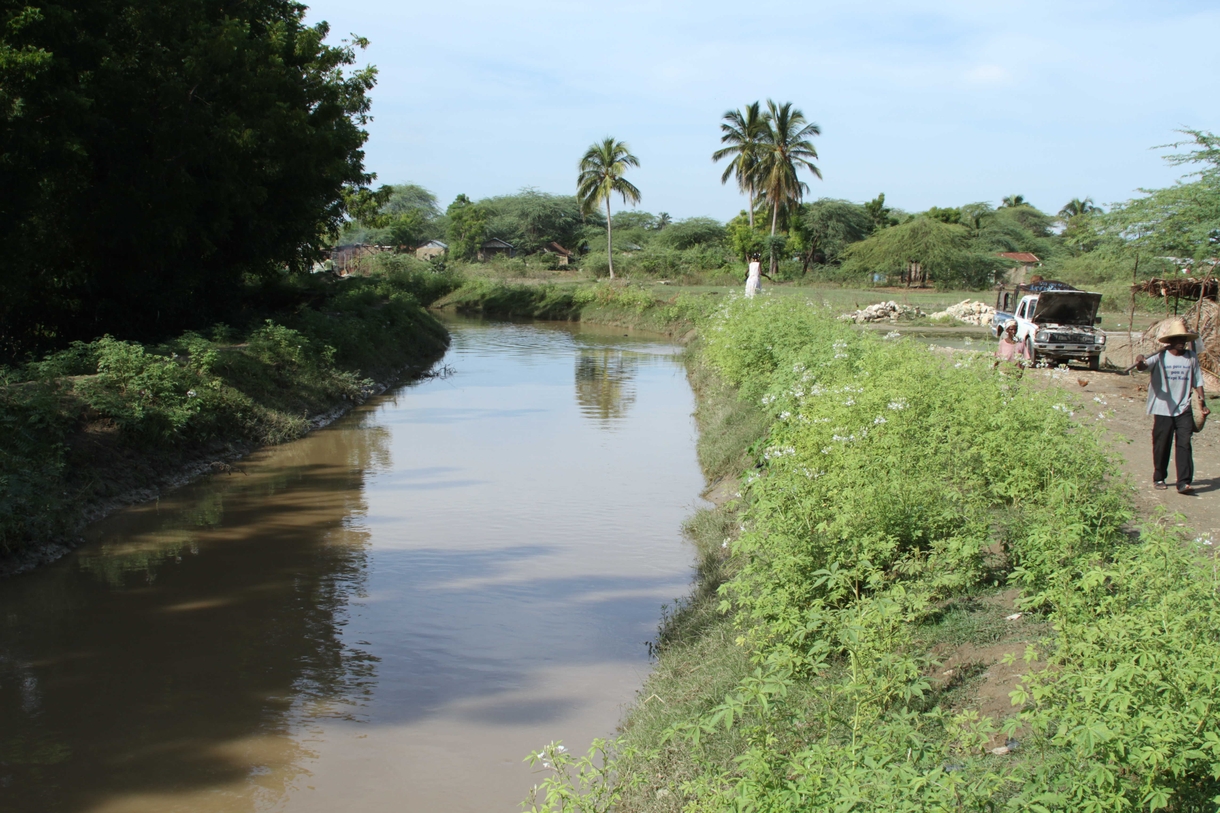How working with local groups can help reduce the risk of disaster
Following the powerful earthquakes that struck Nepal in April and May, Oxfam has been delivering aid to survivors in seven of the hardest-hit districts of the country. By October, we had reached more than 445,000 survivors, providing food, emergency shelter, clean water, hygiene materials and sanitation facilities, as well as rice seed for planting. The response in Nepal prioritized working with local institutions, which are better placed to assist survivors, but also to build their experience and reduce the risk of future emergencies.
Current Situation in Nepal
The government of Nepal reports that around 8,900 people died in the quakes and more than 22,000 were injured. Hundreds of thousands of homes were destroyed—more than 90 percent of the housing in some districts.
Oxfam has been fighting poverty in Nepal for more than 30 years; in recent years, we have been helping communities prepare for emergencies like earthquakes, floods, and epidemics. For example, before the disaster, we worked with partners to build three earthquake-resistant water points, which helped us quickly begin distributing water to survivors. Cholera is endemic in Nepal, so there is a special urgency to ensuring access to clean water, sanitation, and hygiene materials in this emergency.
Monsoon rains and rice: The arrival of the monsoon season, when Nepal gets most of its annual rainfall, made the race to deliver life-saving assistance more urgent, as roads become impassable and families without adequate shelter face serious hardship. Yet the rains also offer an opportunity: Most rural families rely on agriculture for their food and income, so Oxfam worked closely with local farmer cooperatives to provide rice seeds to more than 24,000 farmers who lost theirs when their houses collapsed. Each family got about 44 pounds of seed, which could yield more than 1,300 pounds of rice they can eat or sell. Oxfam also delivered storage bags for grain and seeds to more than 13,000 families, and livestock feed to 1,371 families.
Attention to women and girls: Recent Oxfam research in Nepal found that women and adolescent girls feel at risk in overcrowded temporary shelters where there is often no privacy. Communal toilets and unlit areas were also cited as insecure places. Poor access to health services and clean water creates a health risk, especially for pregnant women. Oxfam is committed to addressing women’s needs in the earthquake response. We’ve set up focus groups to ensure women’s voices are heard. We have distributed gender-sensitive hygiene kits and built separate toilets. Oxfam is working closely with the Women for Human Rights organization in Nepal to help ensure that women can share safety concerns and advice, access medical care, and benefit from recovery and reconstruction programs.
How Oxfam works with local organizations to reduce risk
In Nepal, Oxfam is working with local groups to distribute goods, organize hygiene-awareness activities, and provide crucial social services to women. Local organizations have more familiarity with the languages and cultures of the affected communities than outside agencies, and they have a better understanding of the terrain, so they are crucial partners in all our programming. Their ability to respond to this and future disasters is crucial, so Oxfam works closely with such groups for years to make sure they are ready to respond, helping with programs that include training first responders and supporting partners to advocate for strong national disaster management. Here are some examples:
Rapid response force in El Salvador: Oxfam spent several years training a group of volunteers from around El Salvador in emergency water, sanitation, and hygiene promotion (WASH); we also supported advocacy work to improve the country’s civil protection system, and stocked a warehouse with emergency relief materials. The national WASH team in turn trained community leaders. The result: a highly effective rapid-response force that works within the country’s improved civil-protection system to save lives.

Preparing for storms in The Philippines: The Philippine Islands hit by Typhoon Haiyan in 2014 are still recovering from widespread damage to homes, fishing boats, and rice and coconut farms. After an immediate response to provide water and sanitation, Oxfam and our partners quickly began helping farmers re-start their agricultural production. Oxfam has also helped fishing communities repair their boats and replace their nets. Meanwhile, we are calling for rapid development of risk-reduction plans, and working to ensure that funding for preparedness work is available to local governments and communities.

Haiti earthquake and cholera response: The 2010 earthquake in Port-au-Prince killed 220,000 people, and injured 300,000. Ten months later, a cholera epidemic killed 8,000 and sickened another 700,000 people. After providing emergency water and sanitation, Oxfam is now working with Haitian groups to help rice, vegetable, and livestock farmers. Oxfam’s partners have trained nearly 70,000 farmers including 1,000 studying the System of Rice Intensification, which grows more rice using less seed and water. Oxfam continues to help strengthen local civil protection committees and emergency teams in which women have leadership roles, and supporting the development of contingency plans to reduce the risk of future disasters in the Artibonite Valley. Oxfam’s partners are continuing cholera education and hygiene promotion in schools and at-risk communities in the Artibonite area.
